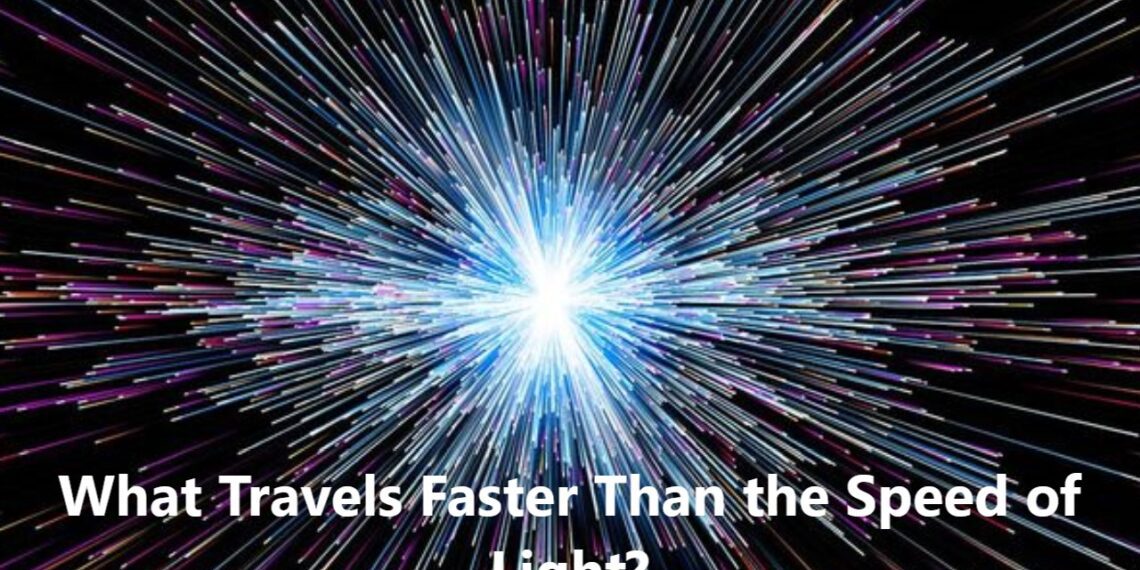The speed of light — about 299,792 kilometers per second (186,282 miles per second) in a vacuum — is often described as the universe’s ultimate speed limit. But what is the speed of light; Astronomers think of that intriguing question: What is faster than light? While nothing with mass can surpass this limit, as stated by Einstein’s theory of relativity, subtle ideas from quantum physics and cosmology suggest other behaviors that might test this idea.
This may not seem trivial; it’s a pretty fundamental aspect of how we understand the universe, and in this article, we’ll be looking at theoretical and practical aspects, regarding whether anything can travel faster than light, and how these concepts are relevant to our understanding of the cosmos.
The speed of light and its significance
Light speed is a natural constant in physics, denoted by the letter ‘c’ in Einstein’s famous equation, E=mc². It is an important boundary for the transfer of information and energy in the universe. According to relativity, as objects approach this speed their mass increases exponentially, requiring an infinite amount of energy to push them beyond this barrier, effectively making it impossible to travel faster than light ahead of time.
Is Anything Able to Travel Faster Than Light?
No physical object can move faster than light; however, some phenomena and theories hint at interesting possibilities:
1. Hypothesis of the existence of tachyons
Tachyons are hypothetical particles that, if they exist, would always move faster than light. But these would-be particles remain entirely hypothetical, as their existence would contradict the core principles of relativity.
2. Quantum Entanglement
In quantum mechanics, particles can become “entangled,” so that the state of one particle is instantly connected with the state of another, no matter how far apart they are. This phenomenon seems to happen faster than the speed of light, but the process doesn’t break relativity because it does not transmit information or energy.
3. Cosmic Inflation
The universe is believed to have experienced rapid inflation, called cosmic inflation, during the Big Bang. This inflation of space itself could happen at a speed much greater than light. Crucially, this doesn’t even have to do with objects exceeding the speed of light but space itself expanding at incredible speeds.
4. The Physics of Warp Drives: A Deep-Dive into Science Fantasy
Based on a science fiction concept, a warp drive would bend space-time in order to achieve faster-than-light travel. Although mathematically possible, concepts like the Alcubierre drive are still, for now, beyond our technological means and would require exotic materials like negative energy.
The Fate of Faster-Than-Light Phenomena
Whatever thing could travel faster than the speed of light would make a huge shift in our thinking about physics and the universe. It could enable:
- Interstellar Travel: Visiting distant galaxies in a human lifetime.
- We may not be able to communicate instantly, but current technology has its limits.
- Disruptive Physics Models: Existing models and theories need to be rethought post new discoveries.
But such advancements would also pave the road with paradoxes, including causality violations where events could happen out of order.
Conclusion
So, in the case of light speed, it is how fast matter can travel through the universe at any one time, and all these phenomena such as quantum entanglement, cosmic inflation, warp drives, and every other wrinkle imaginable encompass more than just mere physical objects — ultimately as all entities are physical. The search for a theory that might show whether anything can ever exceed this universal speed limit continues to fascinate physicists and some futurists.
As technology progresses, what discoveries may change our views on speed, space and time? And Tarantola asked, “What goes faster than the speed of light?” is one of the most exciting mysteries of modern science.






